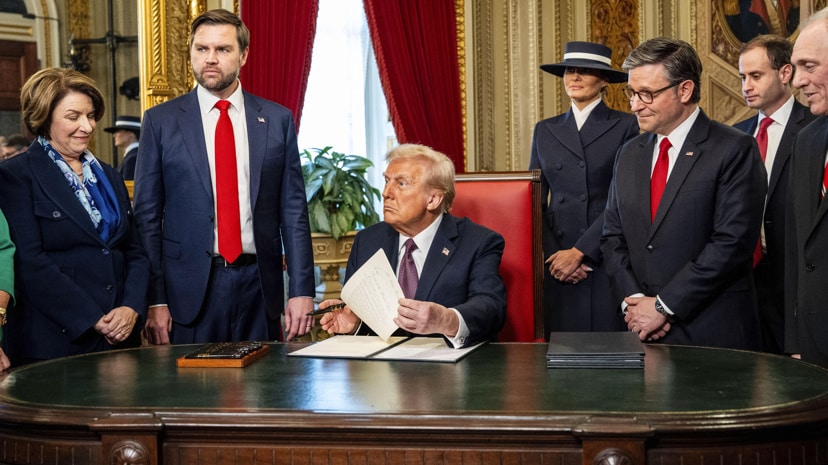As President Donald Trump begins his second term, he has prioritised a renewed focus on tackling inflation, a key issue that defined the economic discontent of many Americans. With measures aimed at reducing costs across housing, energy, and healthcare, Trump’s administration promises swift actions, although experts debate their potential effectiveness.
In his inauguration speech, Trump vowed to combat inflation by increasing energy production, cutting regulations, and reducing government spending. His approach reflects a blend of familiar economic strategies and bold regulatory reforms that aim to ease financial burdens on American households.
Trump : Expanding Energy Production to Curb Inflation
One of the primary objectives of the Trump administration is to increase American energy production. The president signed an executive order to permit oil drilling on additional federal lands, including the Arctic National Wildlife Refuge. Trump asserted that this initiative might lower fuel prices and consumer energy costs.
Critics, however, argue that the energy market operates on a global scale, limiting the impact of localised production increases. According to the Energy Department, American crude oil production already leads the world and is projected to rise further. Global dynamics, such as the Organisation of Petroleum Exporting Countries (OPEC) adjusting output, could counterbalance any price reductions from increased US drilling.
The administration’s energy policy is also controversial for its environmental implications. While Trump aims to bring down fuel prices, concerns linger about long-term consequences for conservation efforts and renewable energy development.
Deregulation and Its Economic Implications
Deregulation forms another cornerstone of Trump’s inflation strategy. The administration is targeting environmental rules, housing permits, and labour laws to streamline processes and reduce compliance costs for businesses. A notable example is the proposed reform of the Waters of the United States Act, which builders claim delays housing construction and inflates costs.
Proponents of deregulation argue that loosening red tape could boost housing supply, easing a key driver of inflation. Recent years have seen a sharp rise in median housing prices and rentals, which has further accelerated price rises overall. The financial burden of regulatory delays is highlighted by the National Association of Home Builders‘ estimates that acquiring the required licenses can take years and cost hundreds of thousands of dollars.
However, experts caution that deregulation may not yield immediate benefits. Mark Zandi, chief economist at Moody’s Analytics, notes that significant regulatory changes often take years to implement and may not necessarily reduce consumer costs as intended.









